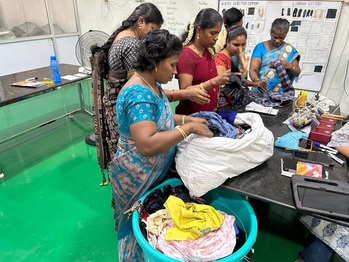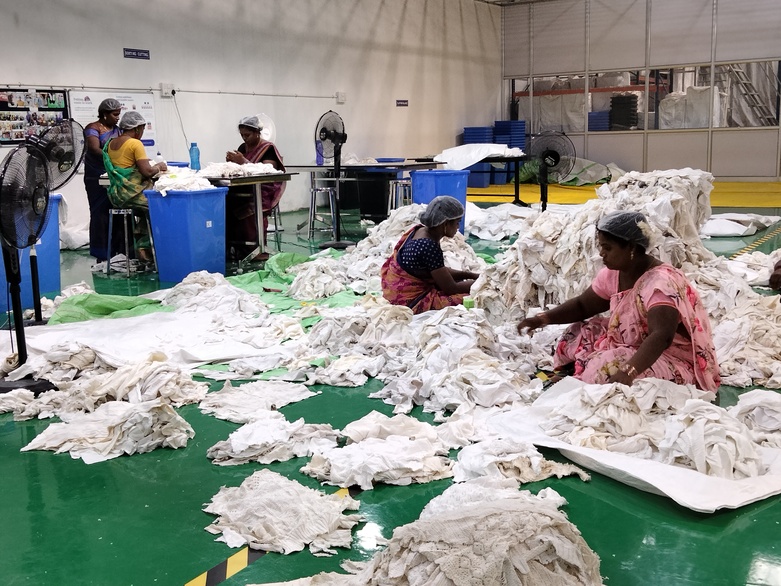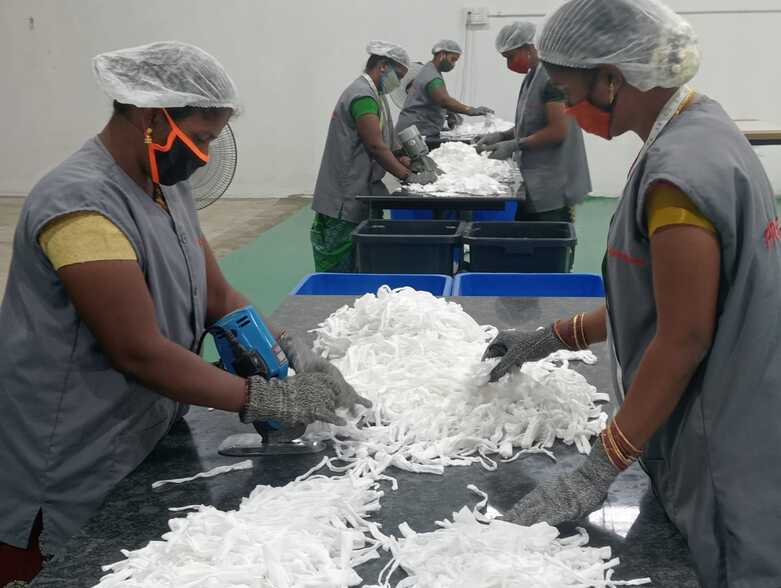Circularity in India’s textile value chain
Building an Inclusive and Circular Textile Waste Value Chain in India
-
Commissioning Party
Federal Ministry for Economic Cooperation and Development (BMZ)
-
Country
-
Overall term
2021 to 2024
-
Other Stakeholders
Concordia Textiles NV, Enviu Foundation (Enviu), PurFI
-
Products and expertise
Climate, environment, management of natural resources

Context
India is the second largest global textile producer, generating around 900,000 tons of textile cutting waste annually, 60 per cent of which is cotton. However, the current waste collection and management systems are informal and fragmented, resulting in improper disposal and pollution. The lack of technology and a sustainable value chain prevent textile recycling potentials from being fulfilled. At the same time, poor working conditions prevail, especially for women and other marginalised groups. To address these issues, the project partners Concordia and PurFi have developed a breakthrough technology that rejuvenates cotton-containing textile waste into high-quality virgin cotton fibres.
Objective
An inclusive and circular textile waste value chain has been set up in India.

Approach
The project aims to establish a formal supply chain for textile waste management, enabling the implementation of the new technology at a larger scale. It promotes environmentally friendly practices, job creation, and improved labour conditions in the following workstreams:
- Engaging the industry and building networks to improve the local textile recycling ecosystem. The project builds partnerships with relevant actors at all levels that are capable and committed to sorting, reusing, and recycling the textile waste collected through the project.
- Setting up collection and sorting centres equipped with the necessary machinery and safety standards to collect, source and sort materials. Additionally, the project aims at developing a robust business model for the sorting centre.
- Building competencies and sharing knowledge among all relevant actors, training them to collect and sort waste and ensure that the waste is reused. The project will disseminate its learnings by developing communication materials to enable scalability to different states and countries.

Last update: June 2023





